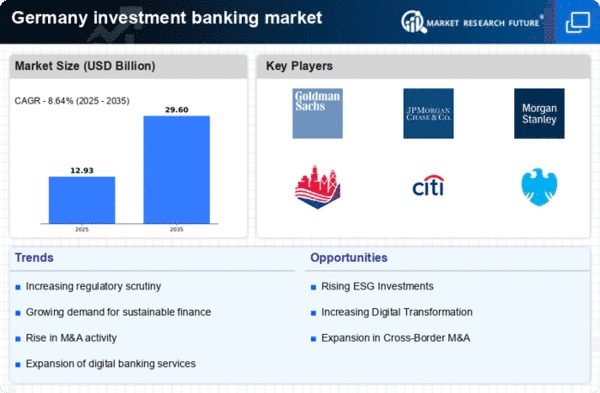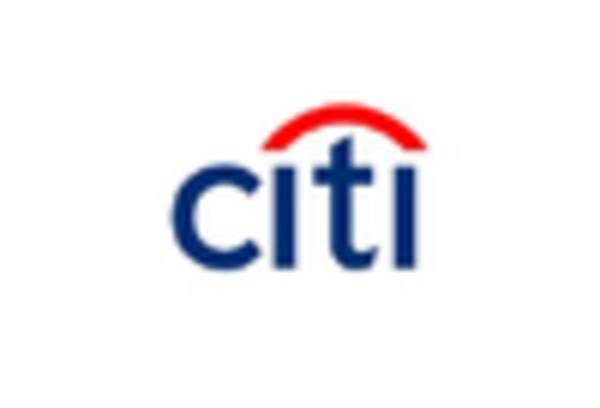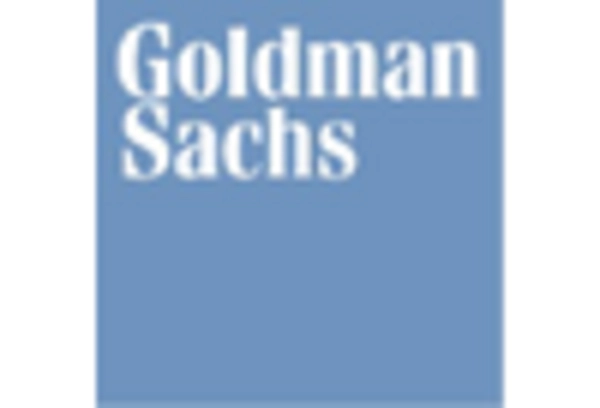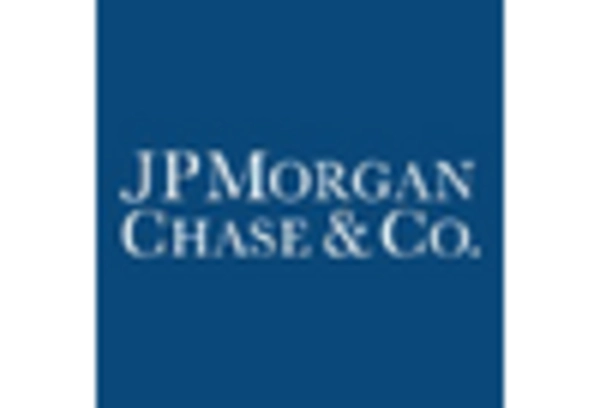Increased M&A Activity
The investment banking market in Germany is experiencing a notable surge in mergers and acquisitions (M&A) activity. This surge is driven by favorable economic conditions and low interest rates. In 2025, the total value of M&A transactions in Germany is projected to reach approximately €200 billion, reflecting a robust appetite for consolidation among companies. This trend is particularly evident in sectors such as technology and healthcare, where strategic acquisitions are seen as essential for growth and innovation. Investment banks play a crucial role in facilitating these transactions, providing advisory services and capital raising solutions. The increasing complexity of cross-border deals also underscores the need for specialized expertise, positioning investment banks as key players in navigating regulatory challenges and ensuring successful outcomes. As companies seek to enhance their competitive positioning, the investment banking market is likely to benefit from this heightened M&A activity.
Focus on ESG Integration
The investment banking market in Germany is increasingly focusing on the integration of Environmental, Social, and Governance (ESG) factors into its business models. This shift is driven by growing investor demand for sustainable investment options and the recognition of ESG's impact on long-term financial performance. In 2025, it is projected that ESG-related investments could account for over 30% of total assets under management in the investment banking sector. As a result, investment banks are developing new financial products that align with sustainable practices, such as green bonds and impact investing funds. This trend not only meets client expectations but also positions banks favorably in a market that is progressively prioritizing sustainability. The emphasis on ESG integration may also lead to enhanced risk management practices, as firms seek to mitigate potential reputational and regulatory risks associated with non-compliance.
Global Economic Influences
The investment banking market in Germany is subject to various global economic influences. These influences shape its dynamics. Factors such as international trade policies, currency fluctuations, and geopolitical tensions can significantly impact investment banking activities. In 2025, analysts suggest that the ongoing trade negotiations between major economies may create both challenges and opportunities for German investment banks. For instance, changes in tariffs could affect cross-border transactions and M&A activities, while currency volatility may influence capital flows. Additionally, the performance of global markets can have a direct correlation with investor sentiment in Germany, affecting deal-making and capital raising efforts. As such, investment banks must remain vigilant and adaptable to these external economic factors to navigate the complexities of the market effectively.
Evolving Regulatory Landscape
The investment banking market in Germany is currently influenced by an evolving regulatory landscape. This landscape necessitates compliance with stringent financial regulations. The implementation of the Markets in Financial Instruments Directive II (MiFID II) has reshaped trading practices and transparency requirements. This regulatory framework aims to enhance investor protection and market integrity, thereby impacting how investment banks operate. As of 2025, compliance costs have risen, with estimates suggesting that firms may allocate up to 10% of their operational budgets to meet these regulatory demands. This shift compels investment banks to adapt their strategies, potentially leading to increased operational efficiencies and innovative compliance solutions. Furthermore, the ongoing discussions around the European Union's Capital Markets Union initiative may further influence the investment banking market, as it seeks to create a more integrated financial market across member states.
Digital Transformation Initiatives
Digital transformation initiatives are reshaping the investment banking market in Germany, as firms increasingly leverage technology to enhance operational efficiency and client engagement. The adoption of advanced analytics, artificial intelligence, and blockchain technology is becoming more prevalent, with investment banks investing heavily in these areas. In 2025, it is estimated that technology spending in the investment banking sector could exceed €5 billion, reflecting a commitment to innovation. This transformation not only streamlines processes but also enables banks to offer more personalized services to clients. Furthermore, the integration of digital platforms facilitates better data management and risk assessment, which are critical in today's fast-paced financial environment. As competition intensifies, investment banks that successfully implement digital strategies are likely to gain a competitive edge in the market.
















